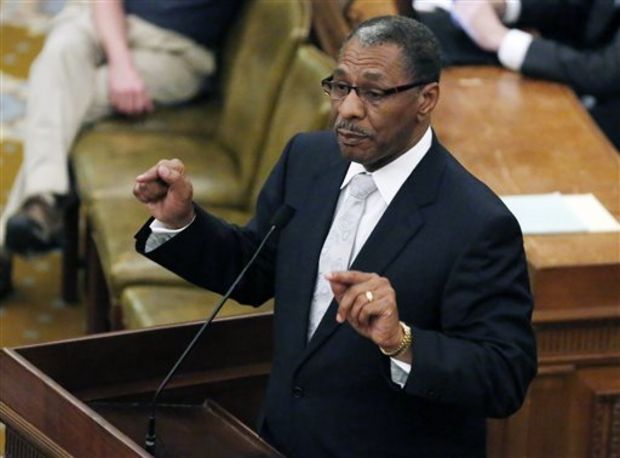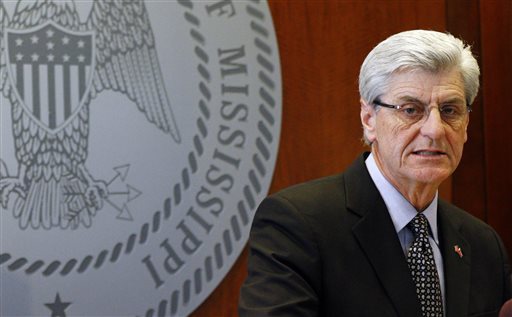

JACKSON, Mississippi (AP) — Here’s a glance at some of the top issues of the 2014 legislative session, which started in early January and ended Wednesday:
Bills that passed
ABORTION — House Bill 1400, which Gov. Phil Bryant says he will sign, would ban abortion at 20 weeks, the midpoint of a 40-week full-term pregnancy. Abortion would still be allowed at or after 20 weeks if the woman faces death or permanent injury because of the pregnancy. It would also be allowed in cases of severe fetal abnormality. Diane Derzis, owner of the state’s only abortion clinic, Jackson Women’s Health Organization, said the clinic stops doing abortions after 16 weeks. The most recent Health Department statistics show 2,176 abortions were done in Mississippi in 2012. Two were listed at 21 weeks or later, and 382 were unknown gestational age.
- BUILDING CODES — Senate Bill 2378, which has been signed by the governor and will become law Aug. 1, creates statewide building codes. Insurance Commissioner Mike Chaney pushed for the bill, saying buildings that are better able to withstand storms will be safer and could reduce the cost of insurance.
- CONFIRMATIONS — The Senate confirmed several people who had been nominated for state government jobs, including state Superintendent of Education Carey Wright and two members of the Parole Board.
- CONCUSSION — House Bill 49, which has been signed by the governor and will become law July 1, will require public and private schools to evaluate student athletes for concussion after they’re shaken up during practice or competition. A player with a concussion would be banned from play until fully recovered. The bill was pushed by the NFL and the Mississippi State Medical Association and supported by groups that govern school activities.
- TAXATION — House Bill 799, which awaits the governor’s consideration, could make it harder for the state to rule that multistate corporations are paying too little in taxes to Mississippi. It says the Department of Revenue would have to present clear and convincing proof before it could reapportion how a company splits its income among states, and only do so in “limited and unique, nonrecurring circumstances.” The department says the proposed change could cost the state $100 million a year in lost revenue. Supporters dispute that figure and say the department’s collection powers put taxpayers at an unfair disadvantage.
- WELFARE DRUG TESTING — House Bill 49, which has been signed by the governor and will become law July 1, says anyone who applies for Temporary Assistance for Needy Families will have to answer a questionnaire. If the answers show the possibility of substance abuse, the person will have to take a drug test. Anyone testing positive would have to receive treatment to receive cash assistance. If the person tests positive for drugs after receiving treatment, the assistance would end.
Bills that died
- END COMMON CORE — The Senate rejected an effort to take away money from Common Core, a set of academic standards that Mississippi and most other states are adopting. The 39-11 vote was against Amendment 1 to Committee Amendment 1 on House Bill 1476.
- TEXTING WHILE DRIVING — Moments before the session ended, Rep. Bill Denny, R-Jackson, put a procedural hold on House Bill 484, a ban on texting while driving. The bill had passed both chambers, but it died when the House, on a loud voice vote, chose not to remove the procedural hold before the session expired.
- SPECIAL EDUCATION VOUCHERS — On the final day of the session, the House rejected House Bill 765, a proposal to give $6,000 vouchers to parents of special education students for use in private schools or for tutoring services.



